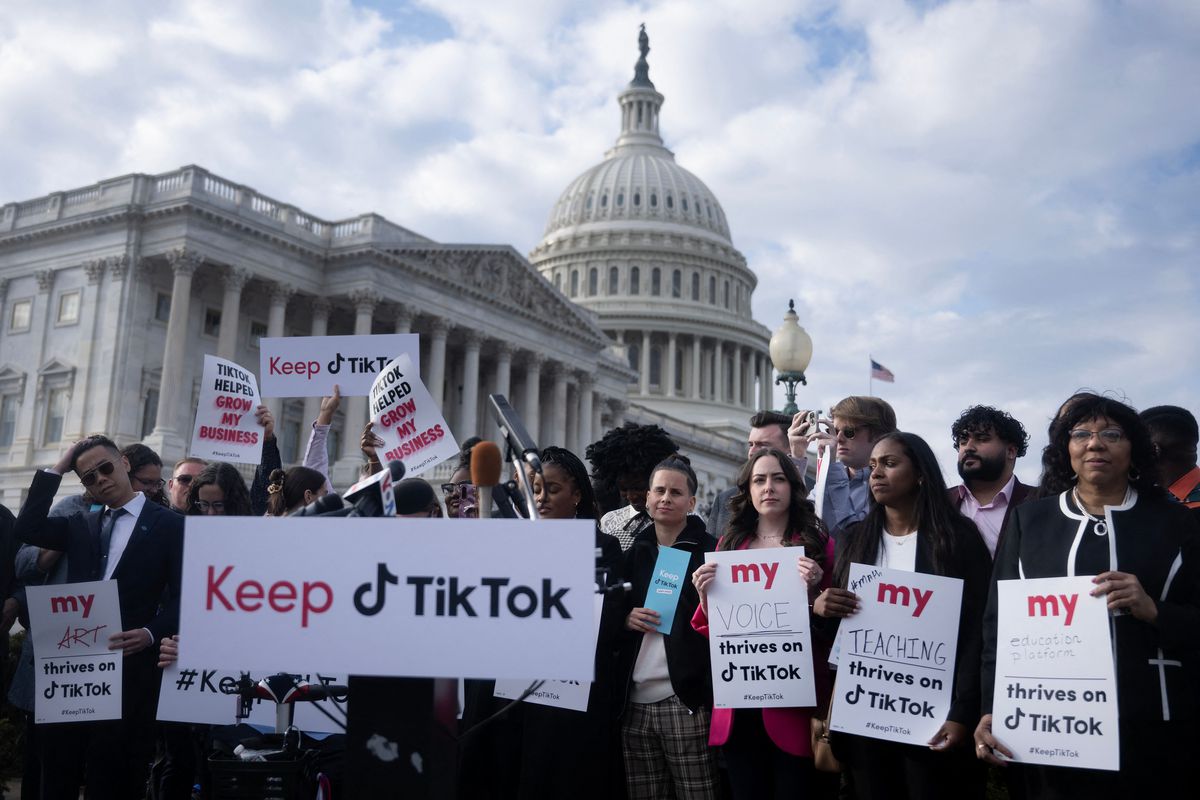Li Zheng, Assistant Research Processor, China Institutes of Contemporary International Relations
Jul 19, 2024
The two sides need to actively explore new models of cooperation with an open attitude to realize development together. How they balance competition and cooperation will not only affect their own relations but also the direction of the world.

Doug Bandow, Senior Fellow, Cato Institute
Apr 19, 2024
The proposed legislation to ban TikTok in the United States reflects unfounded fears of Chinese influence and undermines principles of free speech and digital competition. While concerns over data privacy and manipulation exist, banning TikTok is an overreach that could harm American businesses and international reputation without addressing more pressing issues.
Philip Cunningham, Independent Scholar
Mar 22, 2024
What’s the future of TikTok in the U.S.? American politics tend to obscure the nuanced technological issues at hand, and policymakers should shift towards regulating social media platforms as public utilities rather than focusing solely on ownership disputes.

Xiao Qian, Deputy Director, Center for International Security and Strategy at Tsinghua University
Feb 29, 2024
The Munich Security Conference generated a lot of heat but little progress on problems posed by artificial intelligence and how it should be regulated. Countries everywhere need to delicately balance tech development with regulation and navigate the fine line between inevitable competition and indispensable cooperation.

Li Zheng, Assistant Research Processor, China Institutes of Contemporary International Relations
Jan 09, 2024
Artificial intelligence is in its early stage, so it’s hard to accurately predict all its risks and benefits. But a new wave of AI is rapidly approaching. No one can afford to ignore the huge potential benefits of this technology and no one can afford to fall behind in international competition.
Zhou Xiaoming, Former Deputy Permanent Representative of China’s Mission to the UN Office in Geneva
Jan 08, 2024
The U.S. technology embargo has only energized Chinese scientists and engineers to create domestic alternatives. But it also hampers global innovation and will breed a variety of different — likely incompatible — technological systems and standards. This is a nightmare.
Zhang Monan, Deputy Director of Institute of American and European Studies, CCIEE
Oct 24, 2023
New regulation on cross-border data to be released by cyberspace authorities is a bold innovation that will spur further breakthroughs in management and create a new balance between development and security interests.
Josephine Wolff, Assistant Professor, Rochester Institute of Technology
Oct 20, 2023
China’s internet regulations and perceived willingness to mobilize its domestic tech industry for espionage have led to preventative measures being taken by the U.S. in the form of bans and sanctions against Chinese tech.
Stephen Roach, Senior Fellow, Yale University
Oct 03, 2023
The debate over the difference between tactics and strategy is as rich as it is enduring. In his seminal 1996 article in the Harvard Business Review, Harvard’s Michael Porter tackled this issue head on. While his focus was business, his arguments can be applied much more broadly – including to today’s Sino-American rivalry.

Brian Wong, Assistant Professor in Philosophy and Fellow at Centre on Contemporary China and the World, HKU and Rhodes Scholar
Sep 21, 2023
The rapid developments in Artificial Intelligence (AI) present a multitude of challenges that demand regulatory attention. And if the U.S. and China can’t reconcile some of their differences on AI regulation and safety, the whole world will suffer.
Back to Top

- China-US Focus builds trust and understanding between the U.S. and China through open dialogue among thought leaders.
- Our Offerings
- Topics
- Videos
- Podcasts
- Columnists
- Research Reports
- Focus Digest
- Stay Connected
-
Thanks for signing up!
- Get the latest stories from China-US Focus weekly.